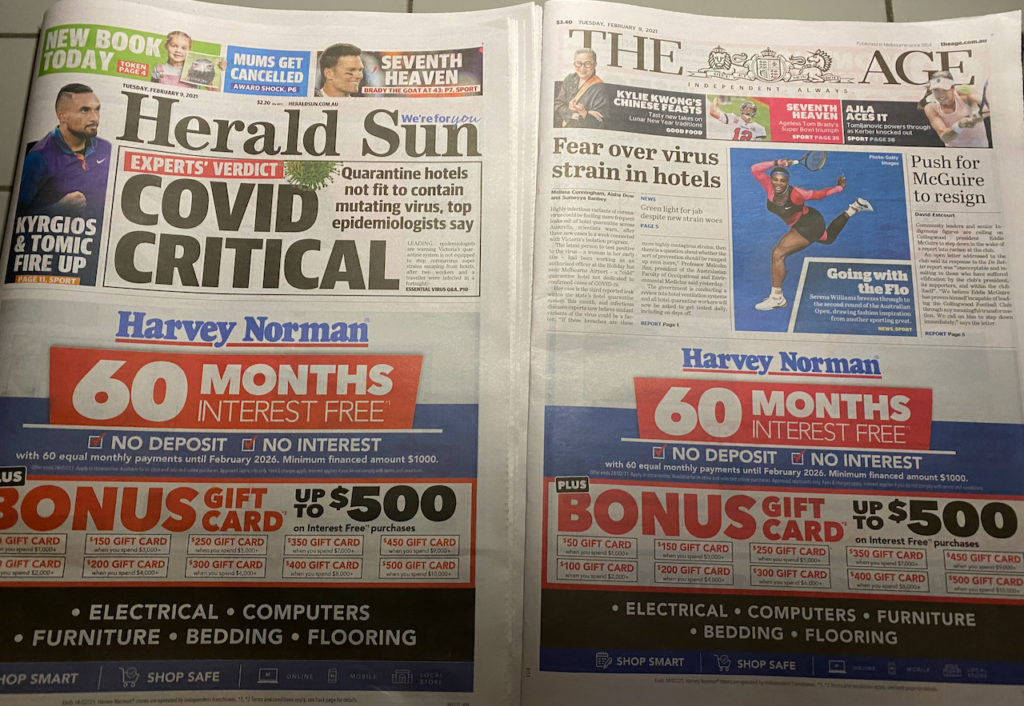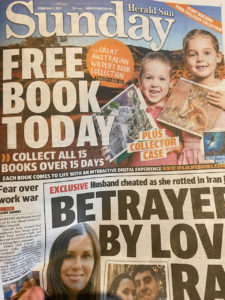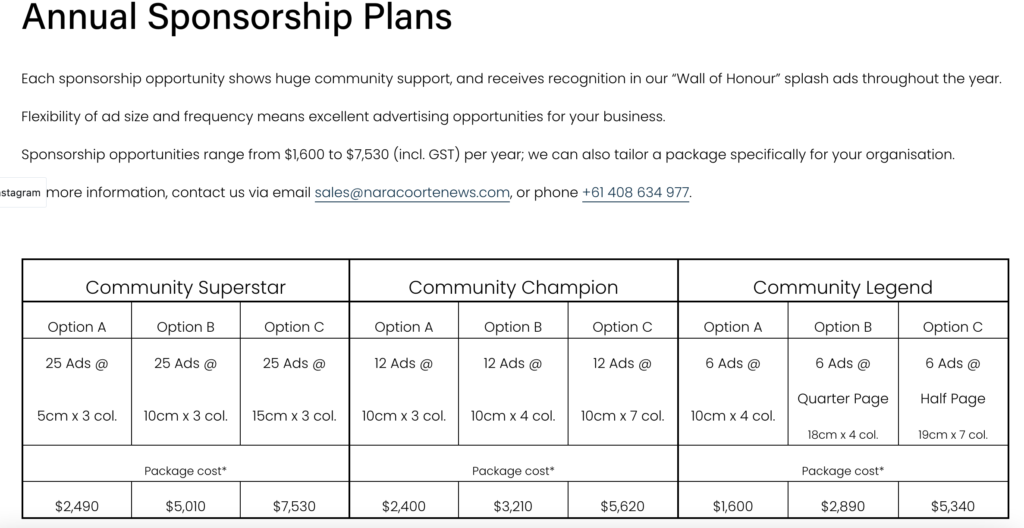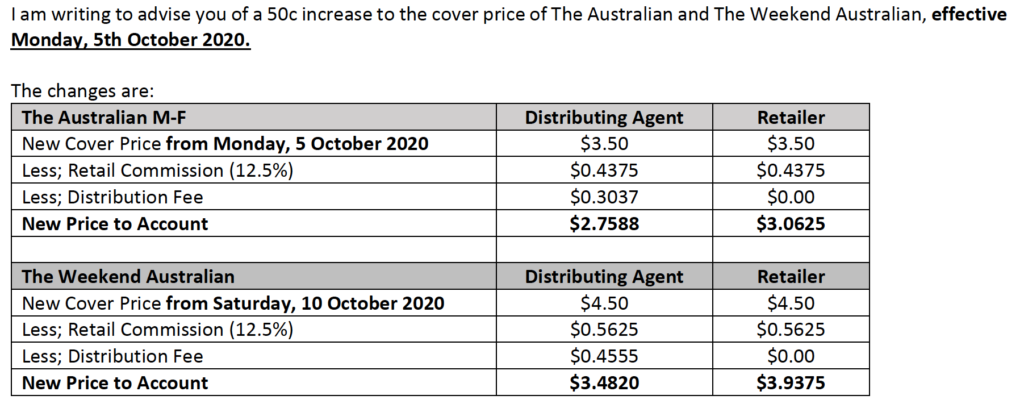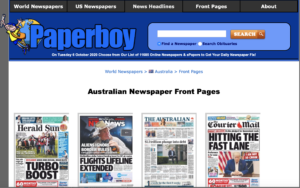Psst! Wanna buy a paper? Well, you’re in luck. Looks like News Corp might have a few on the market.
The Murdochs appear to be looking for a buyer for their chain of metropolitan tabloids like the Herald Sun, The Daily Telegraph and The Courier-Mail. Only hitch: it doesn’t seem any of them are making much — if any — money.
If the sale happens, expect it to be soon: Rupert has always liked timing deals leading into Christmas, allowing any unavoidable huffing and puffing to fade in the torpor of the holiday season.
The tabloids have become too large a problem to be managed. Ever since the Murdochs split their media business into two back in 2013, the old media News Corp has been an ungainly mix of assets that make money (The Wall Street Journal, realestate.com.au) and those that don’t (the tabloids, regional newspapers, Foxtel).
News Corp shares have been worth less than they would if the company were smaller, thinned down, without those loss-making parts. That’s a conundrum for a family trust much of whose wealth is tied up in those shares.
Over the past year, the company has been methodically working through its portfolio, closing and shedding the parts that don’t work. In March, it sold off its coupons business, News America Marketing, to private equity for about $335 million.
In May, it stopped printing over 100 of its regional and community newspapers, closing some and leaving others to limp on with a purely digital presence. The residue has been considered on the market, perhaps to Australian Community Media that bought Nine’s similar portfolio last year.
News Corp predicts this restructure is reducing revenues this financial year by about $160 million. According to the published accounts, it cost most of the $150 million the company spent on termination payments last year.
Then, in August, the end of year figures separately reported results for the loss-making mastheads in Australia, the UK and US and for the money-making WSJ. The reporting put the difference up in lights: the remnant News Media revenues fell by about 20% (much of it before the COVID-19 crash); in the new Dow Jones-WSJ segment revenues were up.
The stock market seems to have sniffed something is up: over the past month, News Corp shares listed on the NASDAQ exchange have jumped almost 40%, over twice the market’s broader post-Trump bump.
The challenge for the tabloids is the challenge faced by traditional local or city-based media around the world: an audience too diffuse to resist the flood of advertisers to the micro-targeting of the tech platforms; yet too geographically focussed to find enough people prepared to pay subscriptions.
In a surprise for long-term Murdoch watchers, it looks like the once-vanity project of The Australian is now more financially stable — even profitable, maybe powerful — than the once-dominant tabloids. At June 30, the company says, The Australian had about 200,000 paying subscribers (in digital and print), the most the paper has ever had. It positions the paper to claim a lion’s share of any payment for news from Google and Facebook.
News Corp will be betting that, along with Sky News, The Australian will sustain its clout in Canberra without the tabloids
By comparison, the Herald Sun, once Australia’s largest paper with more than 600,000 in circulation, now claims only 125,000 paying subscribers. Like The Courier-Mail, it failed spectacularly in turning its power against the local Labor premier.
London’s The Sun, which boasted a circulation well over 3 million back when it was making and breaking British governments, now limps along at about 1 million. It has no paid-for digital offering.
Traditionally, when Murdoch has sold mastheads, he’s sold to other media players or to a management buyout. For the Australian tabloids, that would make local management and Seven West Media the front-runners. Owner Kerry Stokes has been a long-term ally of Rupert. The West Australian already shares copy with News Corp.
And the price? Nine’s sale of New Zealand’s Stuff earlier this year may have set the market: NZ$1 to its local CEO. Sounds about right, but expect that to be buried in exchanges of rights, share-holdings and liabilities.
Regulars here will know my response – we should all be running our businesses to rely less of traffic freeways and more on traffic laneways. In other words, more sources of shopper traffic than the usual regular ones on which we, as a channel, grew up.
